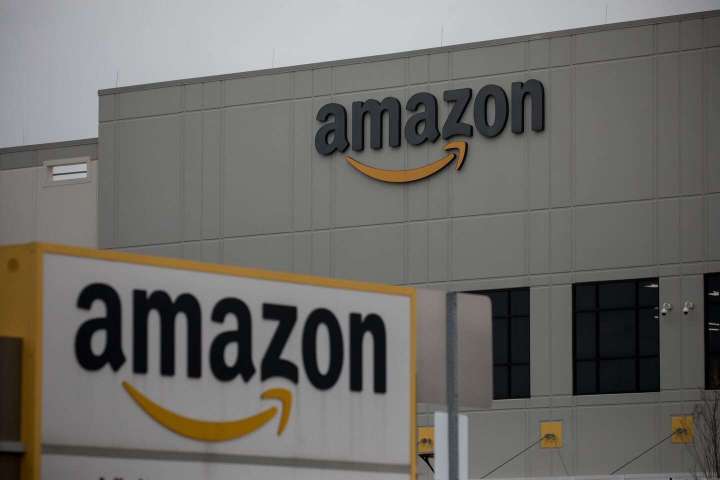California sued Amazon on Wednesday, alleging that the company caused higher prices across the state and “stifled competition.”
California sues Amazon, accusing it of anticompetitive behavior

“For years, California consumers have paid more for their online purchases because of Amazon’s anticompetitive contracting practices,” state Attorney General Rob Bonta (D) said in a statement.
Amazon did not immediately respond to a request for comment. Amazon founder Jeff Bezos owns The Washington Post.
The suit comes as regulators in Washington, the states and Europe are increasingly targeting the power and influence of the largest tech companies.
Some of these efforts have faced roadblocks in the courts, including a very similar lawsuit brought by D.C. Attorney General Karl A. Racine (D) last year. That suit was thrown out by a judge this year, but Racine in August filed a notice that he would appeal the decision.
The California suit could foreshadow antitrust challenges against Amazon in Washington. The Federal Trade Commission has been investigating the company for years, and its chair, Lina Khan, is widely expected to take action against the company, following years of criticizing its allegedly monopolistic practices as an academic and congressional staffer.
Amazon’s behavior has also come under scrutiny on Capitol Hill, where a bipartisan coalition of lawmakers has advanced bills that take aim at the way the company treats third-party sellers. Amazon, other tech companies and their surrogates have mounted an extensive lobbying campaign to bat back the legislation.
California’s suit alleges that Amazon’s actions have harmed the state’s consumers and economy. The complaint alleges that Amazon has previously misled other regulators who have scrutinized its effect on pricing.
“Amazon makes consumers think they are getting the lowest prices possible, when in fact, they cannot get the low prices that would prevail in a freely competitive market because Amazon has coerced and induced its third-party sellers and wholesale suppliers to enter into anticompetitive agreements on price,” the suit alleges.
The suit refers to contracts that Amazon signs with third-party merchants who sell items on its site. These agreements, the suit says, forbid sellers from listing items for less money on competitor sites such as Walmart, Target or even on their own websites.
“Amazon has misled consumers into believing they are getting the low prices that would prevail in a competitive market when, in fact, it has deliberately caused prices to be generally higher everywhere else than they would be absent price parity,” the complaint alleges.
These types of contracts are not inherently anticompetitive, said Herb Hovenkamp, an antitrust professor at the University of Pennsylvania Carey Law School and at Wharton. But in this case it could be, he said.
“They want to maximize business on their own platform by making sure other firms don’t get a better deal than they do,” Hovenkamp said.
Amazon’s third-party seller business is a significant source of money for the company — earning it $27.4 billion in revenue in the last quarter alone. Third-party sellers have long accounted for more than half of all items sold on Amazon.
The complaint also paints a detailed portrait of the ways that Amazon wields power over sellers, which could have implications for other antitrust cases regarding the company’s online marketplace.
Amazon sellers are extremely dependent on the revenue they gain from people buying their goods on the platform, according to the complaint. About half of Amazon’s third-party sellers generate between 80 percent and 100 percent of their revenue in the company’s marketplace, the complaint says.
“We’re stuck. We don’t have a choice but to sell through Amazon,” one merchant told investigators.
Amazon is far from alone among the tech giants in facing antitrust suits. The FTC has a pending suit against Facebook, and the Justice Department sued Google over monopoly concerns in 2020.






